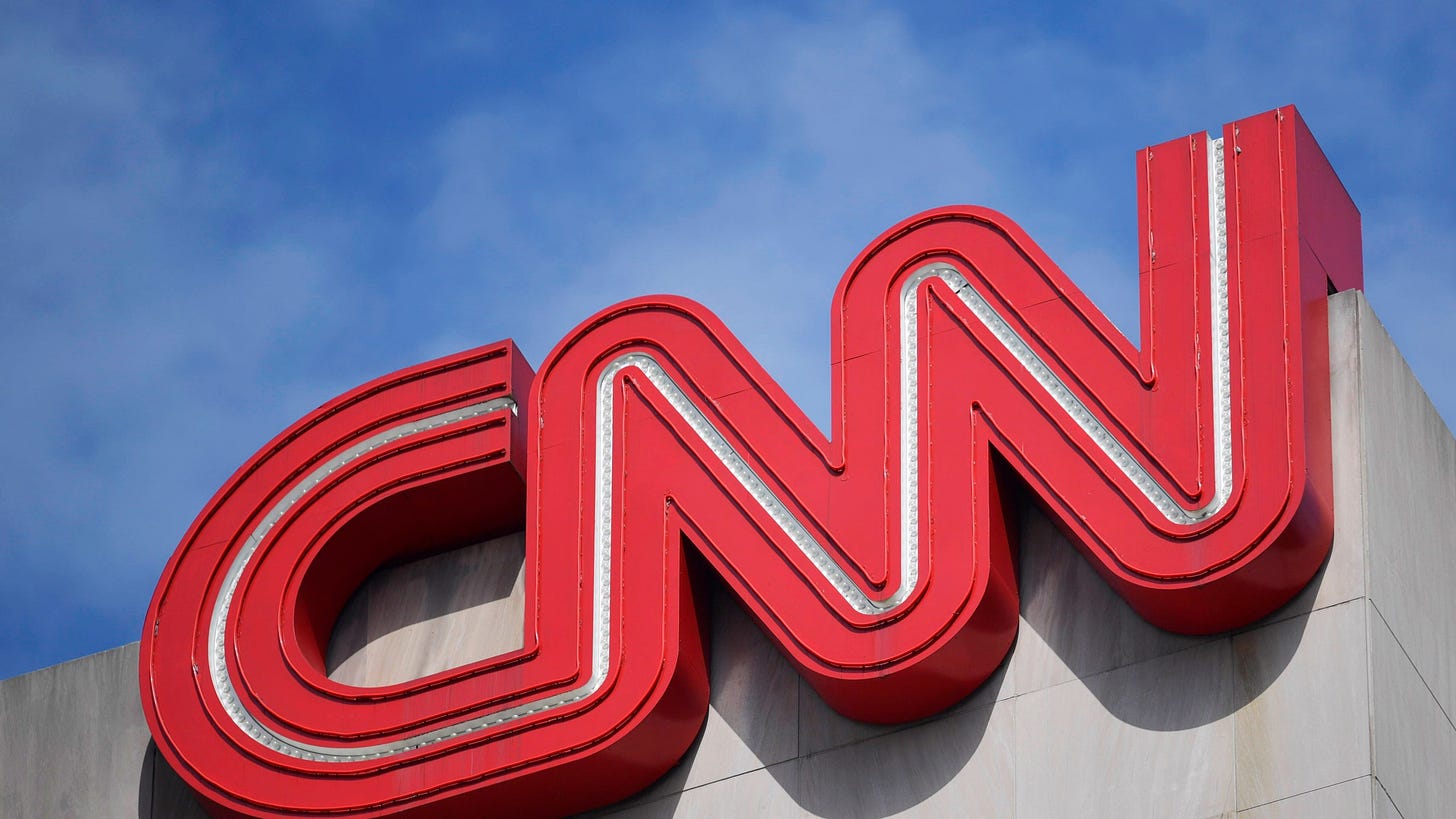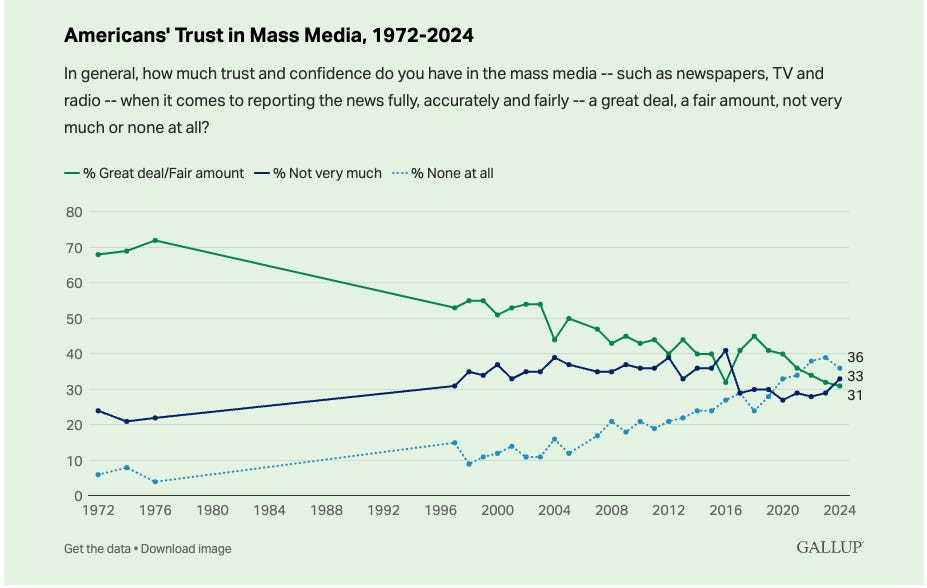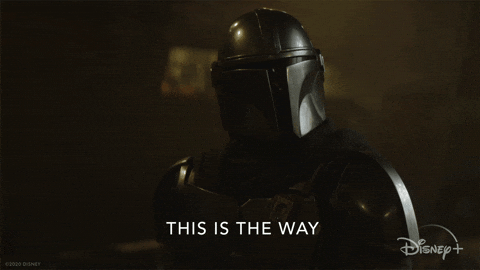The news at my former employer is not good.
Here’s Puck’s Dylan Byers with the latest:
In the next few months, I’m told, CNN will implement another round of layoffs that will impact hundreds of employees across the organization, including those whose TV production talents won’t necessarily be needed in the new digital-first landscape. Reporters and correspondents will be asked to assume more of the responsibilities once handled by teams of producers and production assistants, redundant assignments will be nixed, and various divisions will be reduced or even eliminated. Some of the on-air talent are also likely to be affected. At the same time, CNN plans to create new positions across the organization that will service Thompson’s new digital-first business. One source posited that the transformation might even result in a net gain of employees. We’ll see. A network spokesperson declined to comment. Meanwhile, insiders describe an atmosphere of high stress and high anxiety.
And this from the New York Times is equally dire:
CNN, which has struggled with ratings for months, has also had falling viewership since the election. The cable news network has averaged 413,000 viewers since last Wednesday, a 22 percent decline from its October averages. In prime time, its viewership declines stand at 43 percent, Nielsen said. (CNN said millions of people watched the network’s election night coverage via digital channels.)
Unfortunately, none of this is surprising. Mainstream media is dying. Or, to be less dramatic about it, mainstream media is in the process of shrinking. Bigly.
In fact,
and I spent an entire hour earlier this fall chatting about how 2024 was, really, the last mainstream media presidential election. (You can watch or listen to that convo here.)This post is FREE. Please share it far and wide. I hope you also consider becoming a paid subscriber. Doing so means you are supporting independent and nonpartisan journalism. And I pledge to you I will always be transparent and authentic. It’s $6 a month or $60 a year. Thank you.
The harsh reality for mainstream media — CNN and others — is that the business model is broken. The flattening of the media environment — anyone with a camera and a microphone can call themselves a “journalist” these days — makes it so that the gatekeeping function that kept people coming back to mainstream media is gone. You can get your news — and analysis — almost anywhere. And people do.
(Sidebar: It’s concerning — to me at least — that anyone can call themselves a “journalist” but we aren’t all abiding by the same rules or even close. But that’s a topic for another day.)
Given that — and the fact that there is no giant money-making idea waiting right over the horizon for these places — the new reality is that media companies are going to have to get smaller. Smaller in staff. Smaller in scope. Just smaller.
Which isn’t great! But, I do have an idea on how they could make smaller work. Or at least attempt to make smaller work.
Before I get into it, let me note: This was all inspired by my friend Brian Stelter’s piece this morning about his suggestions for how to make the MSM more relevant. It’s very much worth the read!
First, start with what we know about media these days: People are deeply distrustful of it. According to Gallup, trust in mass media is at an ALL TIME low:
Which I get! Because we have all grown much less trusting of big institutions — be it the White House, the church or the police. It is a societal reality these days; we now are unsure about who we can really rely on to give it to us straight.
And it’s really hard to convince people that a GIANT company like CNN, which has more than 3,500 employees, is the port in that storm — the one big brand that, actually, you can trust.
CNN — and every other major media brand — is rowing against the tide there.
But, even amid the growing distrust in the media, here’s what hasn’t changed: People a) are still interested in what’s happening in the world around them b) don’t have the time to sort through all of it themselves and c) want a person who can be their news cruise director — pointing out what they need to pay attention to and explaining why.
Note carefully “c” in that paragraph: A person. Not a giant media organization.
Now, I am aware that CNN is, in fact, a giant media organization. But here’s my idea: Take 10-15 subject experts at CNN and turn them into, effectively, personal brands. In short: Personalize CNN. Make it about these individual experts, not about the hulking brand that people don’t really trust.
And here’s the thing: They TOTALLY have people who can do this!
Brian Stelter on media!
Harry Enten on data/polling!
Jake Tapper on accountability/investigative/whatever he wants!
Kaitlan Collins on Trump/Republicans
Sanjay Gupta on health!
Donie O’Sullivan on misinformation and our complex content environment!
Sara Sidner on literally anything (I love her!)
I am leaving TONS of great people out — because I just came up with this list off the top of my head!
My broader point is this: CNN has a TON of really good people. People who are experts. People who are GREAT at writing. And talking. And making multimedia content.
THAT is the way of the future — for CNN and everyone else. Lean into that!
Because while convincing people to trust CNN as a entity might be a near-impossible task, I really believe that if CNN built out a vertical fro Donie’s content — interviews, Q and A, writing, audio etc. — that regular folks WOULD trust him. They would get to KNOW him. Not as “CNN’s Donie O’Sullivan” but as just Donie O’Sullivan.
And, as I have seen with the growth of this newsletter and of my YouTube channel, people WANT to support — financially and otherwise — folks who they think are doing their level best to be fair, accurate and transparent.
Speaking of which — become a subscriber to this newsletter today! 😂😂😂
Charging people for the content of the people I named above isn’t going to save CNN financially. There isn’t ONE answer for how to do that.
But it might help people learnt to start trusting the media again. And that would be a MAJOR step in the right direction — for all of us.







Off the top of my head the problem with Kaitlin Collins being the expert on Trump/Republicans is she DOESN"T LIKE Trump and Republicans and makes it obvious. That makes her just like thousands of other "journalists" out there.
I go to CNN after a major event such as the assassination attempt on Trump because they usually are really good at that type of reporting.. I'm not sure that fits into a successful business model though.
ehhh not your best stuff, Chris. I read Brian Stelter too, but he's a partisan hack. He is part of the problem.